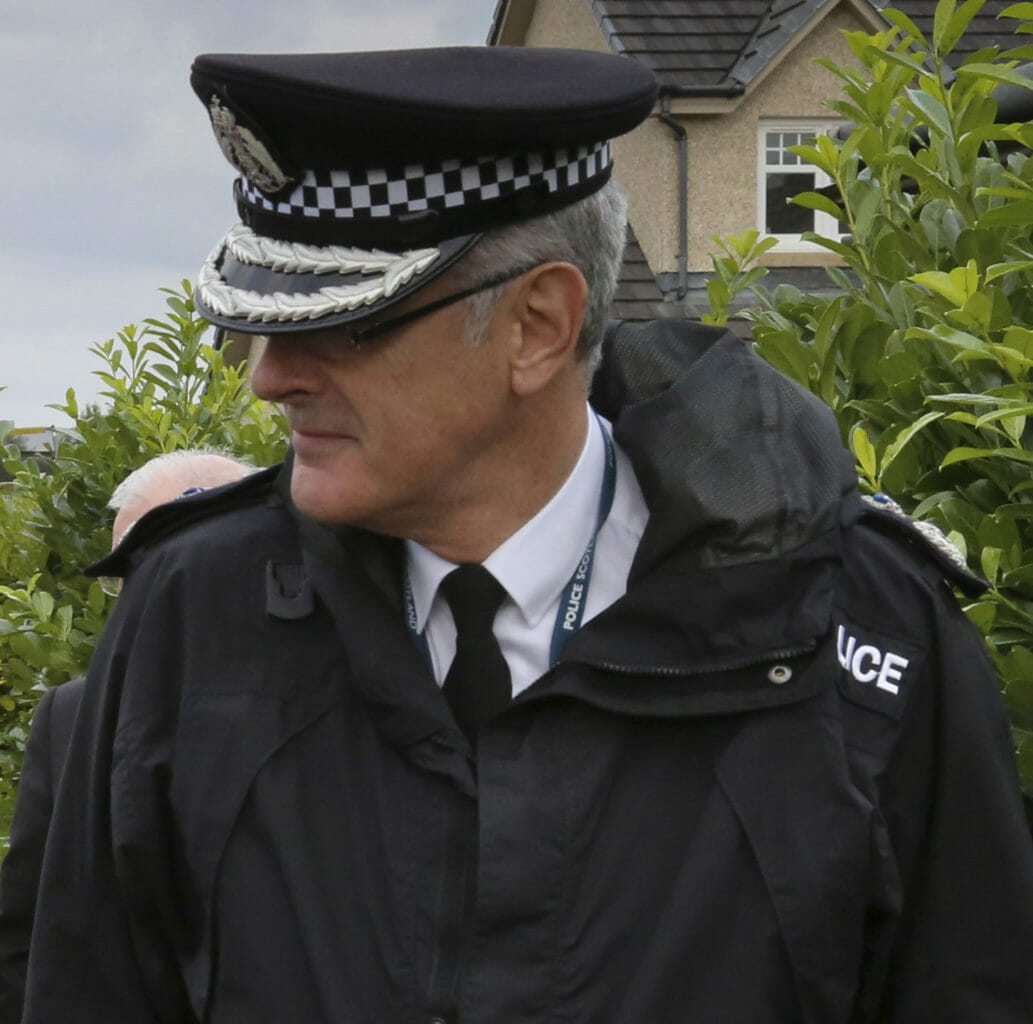An environmental activist deceived into an intimate relationship by an undercover police officer who operated in Scotland has been awarded £229,000 in compensation.
Kate Wilson won the compensation in a landmark legal case after a tribunal ruled that police grossly violated her human rights in five ways.
Wilson was an environmental activist targeted by a secret Metropolitan Police squad called the National Public Order Intelligence Unit (NPOIU), aka spycops.
This unit was overseen by Scotland’s former police chief, as revealed by The Ferret in 2018.
Wilson became involved with an undercover police officer called Mark Kennedy, who spent seven years infiltrating the lives of environmental campaigners. He deceived at least three other women into relationships.
Kennedy used the name Mark Stone while infiltrating the climate protest movement, and was known as ‘Flash’ to campaigners.
It is compensation for the parts of the claim that the police denied right up to the end — how complicit Mark’s managers were, and the role of five other undercover officers in violating my political rights, and the fact that they dragged out those denials for 10 years.
Kate Wilson
Wilson started her relationship with Kennedy in 2003 when she was involved in organising protests against a summit of G8 leaders in Scotland.
She previously successfully sued police but continued her fight for the truth by taking the case to the Investigatory Powers Tribunal (IPT).
In a submission to the IPT, as reported by The Ferret, Wilson said that redacted documents from the Met revealed that Phil Gormley – Scotland’s former chief constable – personally signed off Kennedy’s undercover investigation into her.
At the time Gormley was head of Special Branch and secretary of the Association of Chief Police Officers’ terrorism committee (ACPO-TAM), which oversaw Kennedy’s disgraced and now disbanded unit, the NPOIU.
While Gormley was overseeing the NPOIU, it ran spycops such as Kennedy, Lynn Watson and Marco Jacobs. All three worked undercover in Scotland and infiltrated protests at the 2005 G8 Summit at Gleneagles.

On Monday, the Investigatory Powers Tribunal (IPT) ordered the Met and the National Police Chiefs Council (NPCC) to pay a total of £229,471.96 to Wilson “by way of just satisfaction for the breaches” under the European Convention on Human Rights in “in connection with the deployment of Mark Kennedy by the respondents as an undercover Officer”.
Commenting on her compensation award, Wilson said: “It is important to note the IPT compensation is not about the relationship I was deceived into by Mark Kennedy. That was settled in a Civil Claim back in 2017.
“It is compensation for the parts of the claim that the police denied right up to the end — how complicit Mark’s managers were, and the role of five other undercover officers in violating my political rights, and the fact that they dragged out those denials for 10 years.”
Another woman spied on by Kennedy, who asked to be referred to as ‘Jane’, said: “For over 50 years, movements such as those against apartheid, racial injustice, and climate change have been infiltrated with impunity, with undercover officers sent in on long-term fishing expeditions. The rights to freedom of expression and assembly and the right to a private life, of anyone taking political action, was considered fair game.”
She added: “As an environmental campaigner, I did not think it possible that my close friend, and sometimes housemate of seven years could be an undercover police officer. It felt instinctively abusive, and a big step too far for the state to do this to us.
“We have now been vindicated by the IPT which recognises this abuse of our human rights, and our democracy.”
Helen Ball, the Met’s assistant commissioner for professionalism, said: “We recognise the gravity of the judgment in this case, which outlined a series of serious failings that allowed Kennedy to remain deployed on a long-term undercover deployment without the appropriate level of supervision and oversight.
“In entering into a sexual relationship, Kennedy’s actions went against the training and guidelines undercover officers received at the time. However, the tribunal found that the training was inadequate and more should have been done to consider the risks of male undercover officers forming relationships with women. We accept these findings.”
Gormley was appointed Chief Constable of Scotland in 2015 but resigned in February 2018 amid allegations of bullying.
He then joined the HM Inspectorate of Constabulary and Fire & Rescue Services to oversee the performance of Northern Irish and northern England forces.
In August 2020 it was announced that Gormley had joined East Anglia’s Children’s Hospices (EACH) as chief executive.
EACH has been asked to comment.
Photo Credit: iStock/Tero Vesaliainen














